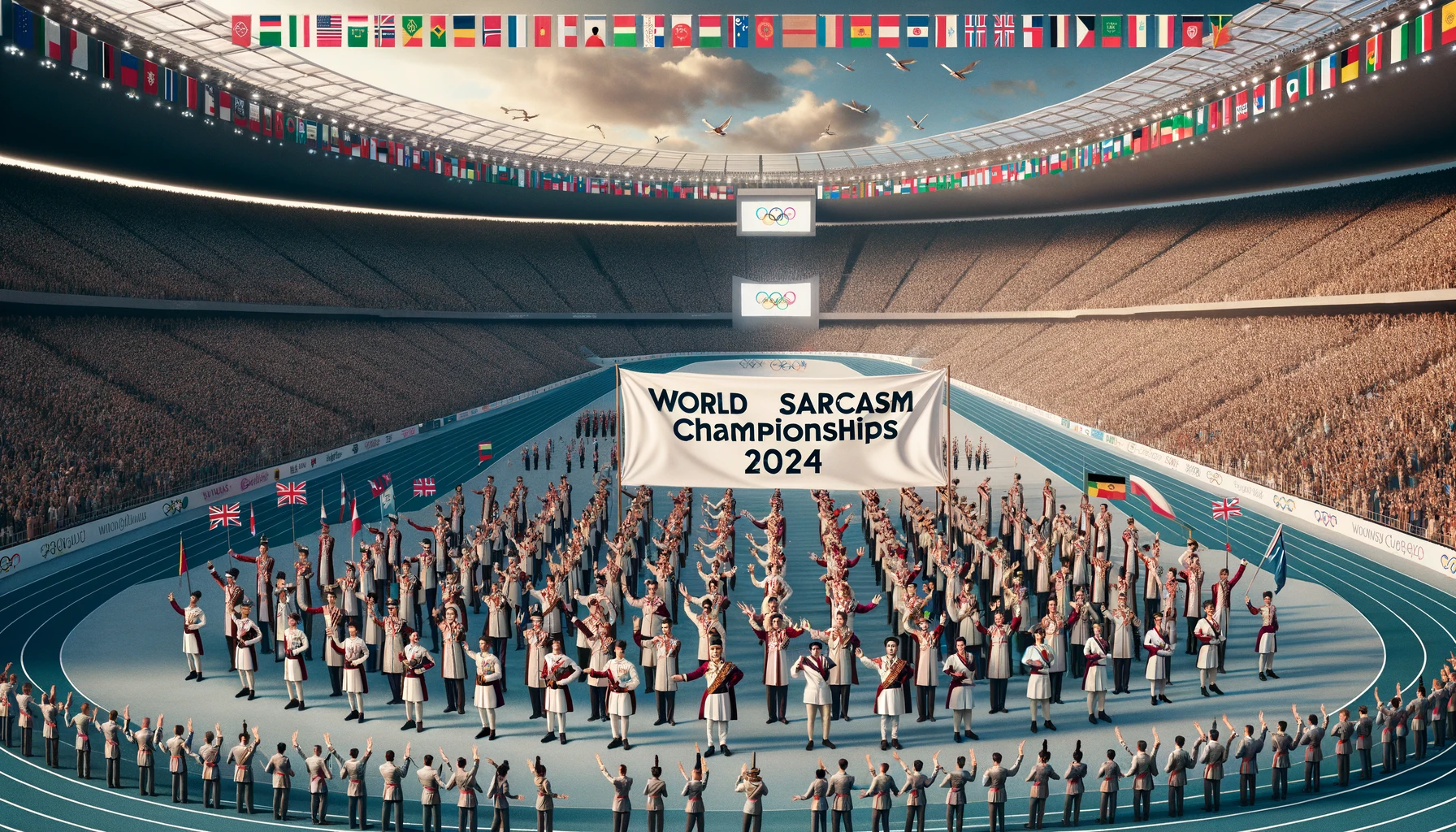The International Olympic Committee (IOC) has officially announced the inclusion of Sarcasm as a competitive sport in the 2024 Olympics. This groundbreaking decision marks the first time a non-physical sport is recognized in the storied history of the games, highlighting the evolving nature of global competitive events.
The new Olympic sarcasm events will test athletes on their quick-wittedness, delivery, and the subtlety of their verbal jabs. Competitors will be scored by a panel of judges who will use sophisticated “sarcasm meters” to measure the depth, creativity, and execution of each sarcastic remark. These devices, developed by top linguistic experts and AI engineers, claim to accurately quantify the nuanced inflections and intonations that characterize sarcastic exchanges.
Athletes from around the world have already begun training for what is being hailed as the most intellectually demanding event in Olympic history. “I’ve been preparing for this moment my whole life,” stated one hopeful competitor, with a perfectly straight face. “Finally, my ability to say one thing but mean another will earn me a gold medal.”
The competition format will consist of several rounds, including the “Sarcastic Commentary on Current Events,” the “Rapid-Fire Retort Relay,” and the highly anticipated “Synchronized Sarcasm” team event. In addition to individual medals, a “Best Overall Sarcasm Team” award will be presented, leading to fierce national rivalries and meticulously prepared one-liners.
Critics of the decision have voiced concerns over the subjective nature of sarcasm, worrying about the potential for cultural misunderstandings and the challenges of translating sarcasm for a global audience. In response, the IOC has assured that judges will undergo rigorous training to ensure fairness and sensitivity to cultural nuances.
The inclusion of sarcasm as an Olympic sport has sparked widespread debate, with supporters praising the IOC for recognizing the intellectual and artistic merits of sarcasm. Detractors, however, question whether the Olympics is the appropriate venue for such a competition. “What’s next, Olympic eye-rolling?” quipped one skeptic, unwittingly suggesting what might just become the next big event in the 2028 games.
As the world eagerly awaits the debut of Olympic Sarcasm, one thing is clear: the games will never be the same. Whether this decision will be remembered as a stroke of genius or an elaborate jest remains to be seen, but for now, athletes and fans alike are sharpening their wits for what promises to be an unforgettable addition to the Olympic tradition.

